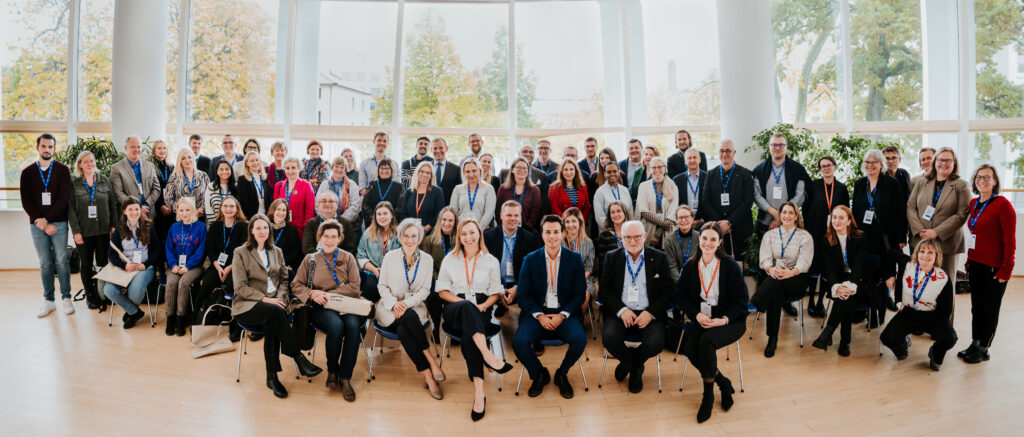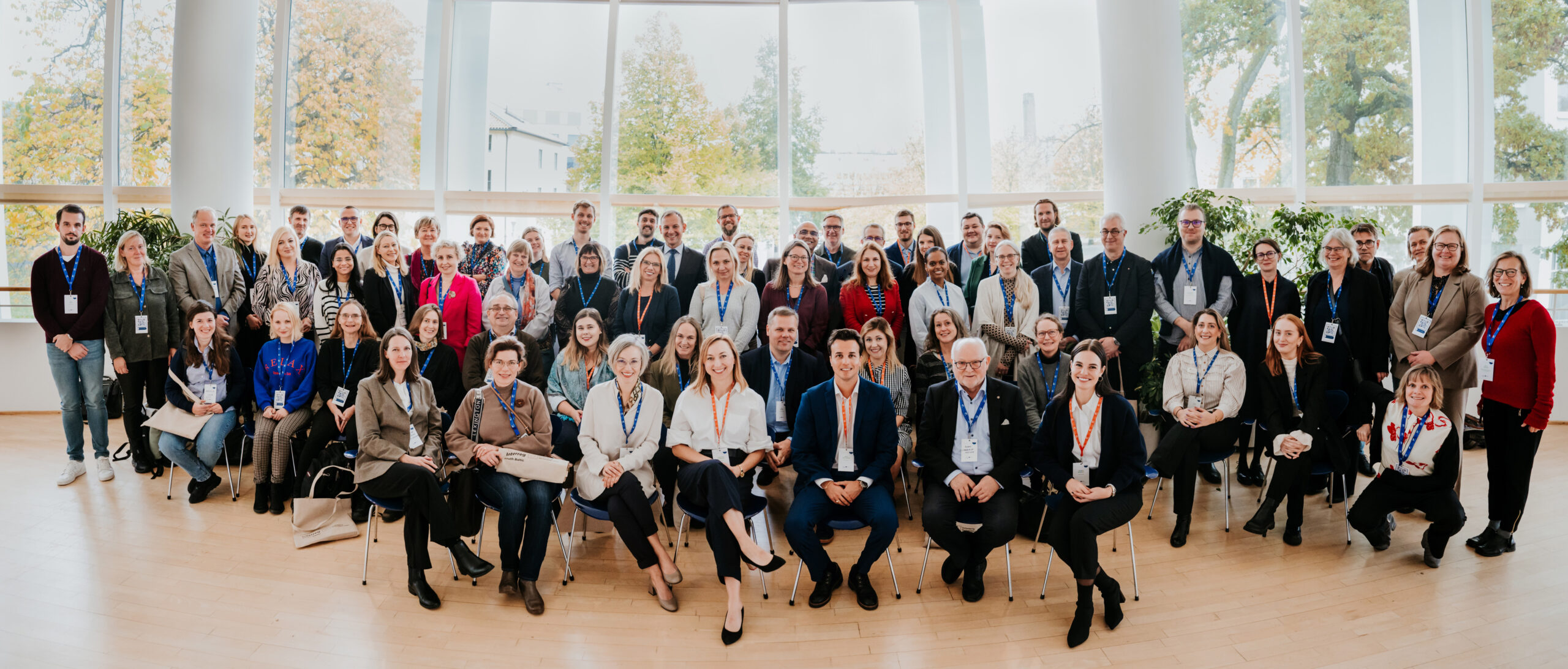The Annual Event 2023 of the Interreg South Baltic Programme 2021-2027 took place in the beautiful historic city of Växjö, Sweden, in Elite Park Hotel & Växjö Konserthus. The event gathered representatives of future and current project partners, as well as members of the Managing Authority.
The event consisted of two parts:
- Optional on 24 October.
- Main event on 25 October
The Annual Event 2023 of the Interreg South Baltic Programme 2021-2027 focused on steering the development of good quality projects and networking.
On 24 October, a city tour of the city of Växjö was offered followed by a networking dinner. Both activities were optional; however, participants of the Annual Event were encouraged to join both activities it to boost networking possibilities among participants and enable a space to potentially discuss the creation of future partnerships that could benefit from the Programme.
During the city tour, the tour guide, in the role of Växjö´s former governor Anders Koskull (1729-1746), allowed participants to explore the old streets and historic squares and alleys of Växjö, showing connections to other countries around the Baltic Sea.
The networking dinner took place in Elite Stadshotellet, Växjö. Participants were allocated in different tables based on the selection of the Programme Priority they opted for in the registration form, facilitating networking between peers sharing the same Priority interest.
On 25 October, the main event was opened by René Jaramillo, the Chairman of Regional Development Board of Region Kronoberg who insired audience for more cooperation and collaboraiton: “we need strong regions that can work together, just that, is why we are here today. Cooperation to develop our strengths, cooperation to help each other find sustainable solutions to our challenges. Every country and every region have a responsibility. Not to us in the present, but to us in the future”. The speech was followed by Magdalena Bednarczyk-Sokół, the Deputy Director, the Territorial Cooperation Department, Ministry of Development Funds and Regional Policy, acting as Managing Authority, who also delivered the opening speech and Małgorzata Skolmowska, the acting Head of Joint Secretariat, who presented the State of Play of the Programme.
Activities of this day included networking and two rounds of workshops that enabled participants to delve into the requirements and measures of the new programming perspective. The morning session included:
- Better connected region with measure 1.2. Economic growth requires, inter alia, actions dedicated to the enhancement of SMEs’ competitiveness, and innovativeness, as well as their presence on an international market. Within this workshop, participants learnt cross-border cooperation and support from our Programme can support SMEs to move from domestic to international business practices, got to know more about expected results, and intervention logic and verified their knowledge with a prepared case study.
- How to increase your cooperation capacity? Get insight into measure 4.1. Within this workshop, participants were presented how the Programme can support in strengthening your cooperation capacity and explore cross-border cooperation. This workshop described the main challenges defined in the Programme Measure, expected projects activities, results, and intervention logic and at the end participants were able to verify participants’ knowledge with a prepared case study.
- How to prepare a good quality project? During this workshop, participants heard about how project applications are assessed, what were the assessment criteria and what were the most common mistakes in previously submitted applications. In the second part of the workshop, participants had the chance to test themselves as assessors and looked for mistakes in fictional project applications. Later, the outcomes and how the case study applications could have been improved were discussed together and participants received further advice and hints that were useful when developing projects for future calls.
The afternoon sessions included:
- Creating a logic of intervention: Programme and project frameworks. During this workshop, participants found out why the logic of intervention was important, having the chance to learn about the structure and the composition of the logic of intervention, and the Programme specification: outputs and results indicators. Participants practiced definitions and examples and summarised the gained knowledge through a practical group task and quizzes.
- Strategies to improve project communication. During this interactive workshop, participants received the tools and the knowledge needed to make their project communication activities more effective.
- How to prepare a good quality project? During this workshop, participants heard about how project applications are assessed, what are the assessment criteria and what were the most common mistakes in previously submitted applications. In the second part of the workshop, participants tested themselves as assessors and looked for mistakes in fictional project applications. Later, the outcomes and how the case study applications could have been improved were discussed together and participants received further advice and hints that are useful when developing projects for future calls.
Participation in each workshop was selected in the registration form. Here you can find the workshop presentations:
-
pdf 20 pages 1.25 MBpdf 20 pages 1.25 MB
-
pdf 21 pages 0.96 MBpdf 21 pages 0.96 MB
-
pdf 20 pages 0.95 MBpdf 20 pages 0.95 MB
-
pdf 34 pages 1.60 MBpdf 34 pages 1.60 MB
-
pdf 17 pages 1.35 MBpdf 17 pages 1.35 MB
The Annual Event concluded with a farewell speech.
A big thank you to all the participants who took part in this event! It has been a great occasion to establish fruitful networking, which will be the cornerstone to sail together throughout the new perspective!


